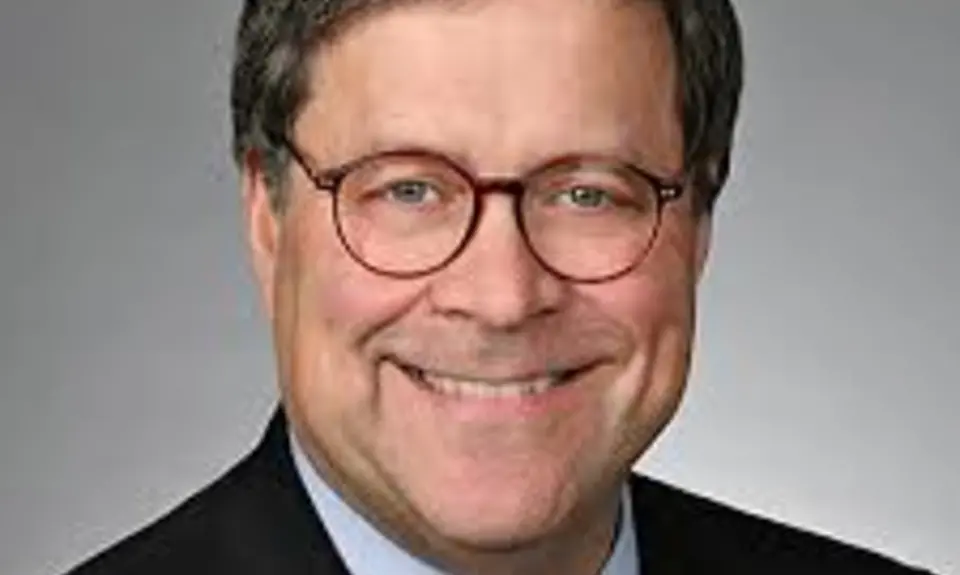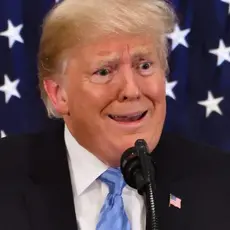President Donald J. Trump has long made it clear that he expects the Attorney General of the United States to protect him from the investigation led by Special Counsel Robert Mueller into the Russian Federation’s interference in the 2016 U.S. presidential election, and from any evidence that the Trump campaign was in on the scheme. After former Attorney General Jeff Sessions recused himself from overseeing the investigation (because of his own belatedly disclosed contacts with Russian officials), he faced months of berating tweets from the president.
With Sessions now gone—after having been asked to resign last month—Trump has taken the opportunity to nominate a replacement who has pooh-poohed the Russia investigation and asserted his preference for pursuing an investigation into Trump’s former political rival, Hillary Clinton, and a “scandal” concocted with millions of right-wing dollars and the propaganda know-how of former White House strategist Stephen K. Bannon. That nominee, William P. Barr, last year told The New York Times that he “sees more basis,” in the words of reporter Peter Baker, for investigating the uranium deal at the heart of a propaganda book produced by a non-profit founded by Bannon than he does in probing “any supposed collusion between Mr. Trump and Russia.”
As cryptic clues of the Mueller investigation’s trajectory have been revealed in sentencing memos, Trump’s tweets decrying the investigation as a “WITCH HUNT!” have only multiplied, as he reiterates calls to investigate the former secretary of state, senator and first lady who won the popular vote (but lost the Electoral College) in the 2016 contest.
Trump’s demands for the Justice Department to look into the relationship between Hillary Clinton and Russia stem from a 2015 book, Clinton Cash: The Untold Story of How and Why Foreign Governments and Businesses Helped Make Bill and Hillary Rich, by Peter Schweizer, Bannon’s “investigator” at the Government Accountability Institute, a non-profit founded in 2012 by Bannon with an initial $1 million investment by the Mercer Family Foundation, the philanthropic vehicle of hedge-fund billionaire Robert Mercer and his daughter, Rebekah. Between 2014-2016, according to tax filings, the Mercer Foundation contributed an additional $5.5 million to the GAI project.
The basic storyline advanced by Schweizer was an allegation that then-Secretary of State Hillary Clinton used her influence to secure approval for a deal with a Russian energy company whose principals donated millions to the Clinton Foundation. GAI struck special deals with the Washington Post and The New York Times for advance publication of some of Schweizer’s findings, leading the Times, in April 2015, to publish a story with a breathless headline hinting of scandal.
Before long, Schweizer’s assertions were disproven or called into question—for instance, Frank Giustra, the major donor cited for donating $131 million to the Clinton Foundation had divested his interest in Uranium One, the company in question, years before the deal came before the regulatory body known as the Committee on Foreign Investment in the United States (CFIUS), on which the State Department has a seat. And Clinton herself, it turned out, had no role on the committee. (The State Department was represented on CFIUS by then-Assistant Secretary of State Jose Fernandez.) At issue before CFIUS was a merger between Uranium One and Rosatom, the Russian state-run energy company that would give Rosatom a 51 percent stake in Uranium One, which had holdings in the U.S.
Schweizer, amplified by mainstream media, asserted that the deal amounted to 20 percent of U.S. uranium when, in truth, the deal has added up to a mere 2 percent. But that doesn’t stop Trump, Republican politicians, Religious Right groups, and right-wing media outlets from sticking to the false 20-percent figure.
And Barr has yet to back away from his claim to the Times that the Uranium One deal has greater merit as the target of a Justice Department investigation than does Russia’s interference in the presidential election and possible involvement by the Trump campaign. Of the Uranium One deal, Barr—now tapped to lead the Department of Justice—told the Times: “To the extent [DOJ] is not pursuing these matters, the department is abdicating its responsibility.”
Barr will no doubt have an opportunity to walk back those comments during his confirmation hearing. But it’s likely he was selected by Trump on the assumption that he’d never consider doing such a thing.






